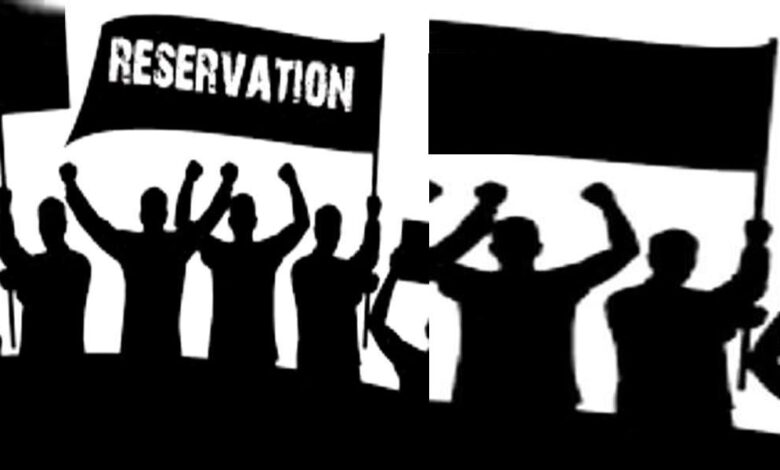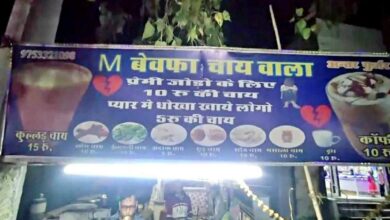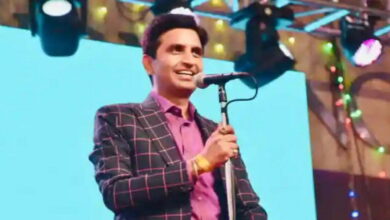Sabka Saath, everyone’s reservation rewari!

After the Supreme Court’s decision to continue with the system of 10 percent reservation for economically backward upper castes, the debate on reservation has once again intensified. However, most of the parties in the country have supported it and welcomed the decision of the Supreme Court. In January 2019, when the bill for the 103rd amendment to the Constitution to give 10 percent reservation to the economically backward ie EWS category of the upper castes came in the Parliament, everyone except DMK, RJD and MIM supported the bill. It is not surprising then that most of the parties have welcomed the decision of the Supreme Court. Parties like DMK, VCK are exceptions, who have opposed it and called it against the concept of social justice. But their opposition has practically no meaning. Like the reservation given to the Dalits, tribals and backwards of the country, the reservation of poor upper castes has also become a part of the constitutional system.
After this decision of the Supreme Court some things have become clear and they should be accepted. The court has accepted the system of reservation based on caste, but hesitantly. So the country should also accept it. In this, the pranksters should keep in mind that just as democracy is the least bad system of many bad systems of governance, in the same way, to remove the historical injustice done to the educationally, socially and now also economically backward people and their To ensure affirmative action, the least worst of the many bad arrangements is that of reservation. Hence the caste based reservation will continue.
Secondly, it has become clear that the 50 per cent reservation limit has been exhausted. In the Indira Sawhney case, a nine-judge bench had fixed the upper limit of reservation at 50 per cent. Then the question is also arising that how the five-judge bench overturned the decision of the nine-judge bench. But in reality the decision has not been reversed. It was the nine-judge bench that had left the way that the limit of reservation can be increased in exceptional circumstances. The five-judge bench has decided on the same basis. So, now whether it is Maratha reservation or reservation for any other caste, the 50 per cent limit will not become a hindrance in his way. Thirdly, it has become clear that economic backwardness will also remain the basis of reservation. According to the constitution, the system of reservation was made only for the socially and educationally backward.
After these proposals, the big question is what will be achieved by this? Will expanding the system of reservation achieve that goal, which has not been achieved in the last 75 years after independence? The answer is very simple. If there is no change in the existing system of reservation, it is not considered scientifically, the sale of government companies does not stop and the system of reservation is not implemented in the private sector, then no goal will be achieved. Many facts can be given to understand this, but a figure given in the Parliament this year tells the reality of the current system of reservation. During the budget session of Parliament on April 5 this year, Union Minister for Social Justice and Empowerment Pratima Bhowmik told the Parliament that in the first two years after the implementation of the system of reservation for poor upper castes, ie in 2019 and 2020, 132 people in the central government will be doing this. Reinstated under reservation. Think, just 132 people! The minister said that the figure for 2021 is not available and how many people have been reinstated under this scheme in the states. The most interesting thing that he told is that in two years, the central government allocated Rs 4,315 crore to different ministries to implement this scheme. In this way, after spending thousands of crores, the upper castes got 132 jobs.
In fact, this is the aim of the government right now. Rewari has to be distributed to everyone in order to take everyone along. It may not benefit the country or the wider society, but it will create an impression, which will get political benefits. If the government was really serious about doing good to the most backward and deprived groups of the country through reservation, it would have first conducted a caste-based census. Detects the social and economic conditions of citizens to identify those who really need affirmative action. Had the government been serious, it would have paid attention to the words of the Justice G Rohini Commission. However, the final report of this commission formed in 2017 has not come. But it had pointed out that 97 per cent of the jobs provided under reservation to OBCs go to 25 per cent of the castes of this group. According to the commission, there are 983 sub-castes of OBCs who have not got any jobs. Think what a great injustice this is! Doesn’t this need to be fixed immediately?
Similarly, in 2019, the Union Education Ministry had prepared a bill, in which provision was made for reservation in admission in private universities and colleges. After the bill was prepared, it was sent for the opinion of the Law Ministry, but so far neither that opinion has been received nor the bill has been brought in the Parliament. This is despite the fact that 65 per cent of the students in higher education are studying in private institutions. If the government was really serious, it would have expanded the system of reservation to the private sector. Keep in mind that the present central government is repeatedly saying that ‘doing business is not the business of the government’ and on the basis of this principle, it is selling all public sector undertakings or reinstatement in their jobs by violating the provisions of reservation in the name of merit. If doing so, he should immediately extend the system of reservation to the private sector. But she is not doing that.
Last month, the central government constituted a commission under the chairmanship of retired Supreme Court Chief Justice KG Balakrishnan to consider the issue of providing reservation facilities to Dalits who convert to Christians or Muslims. Keep in mind that till now this facility is available only to Hindu, Sikh or Buddhist Dalits. Recently, Prime Minister Narendra Modi asked the leaders in his party’s executive committee in Hyderabad to go among the Pasmanda means backward Muslims and work for their upliftment. So, whether it is a matter of reservation for the poor upper castes or considering the reservation of Christian and Muslim Dalits or whether it is a matter of doing something for the Pasmanda Muslims, the purpose of all this is to distribute the Rewari with everyone. It does not achieve anything in the real sense and does not benefit the really needy.






